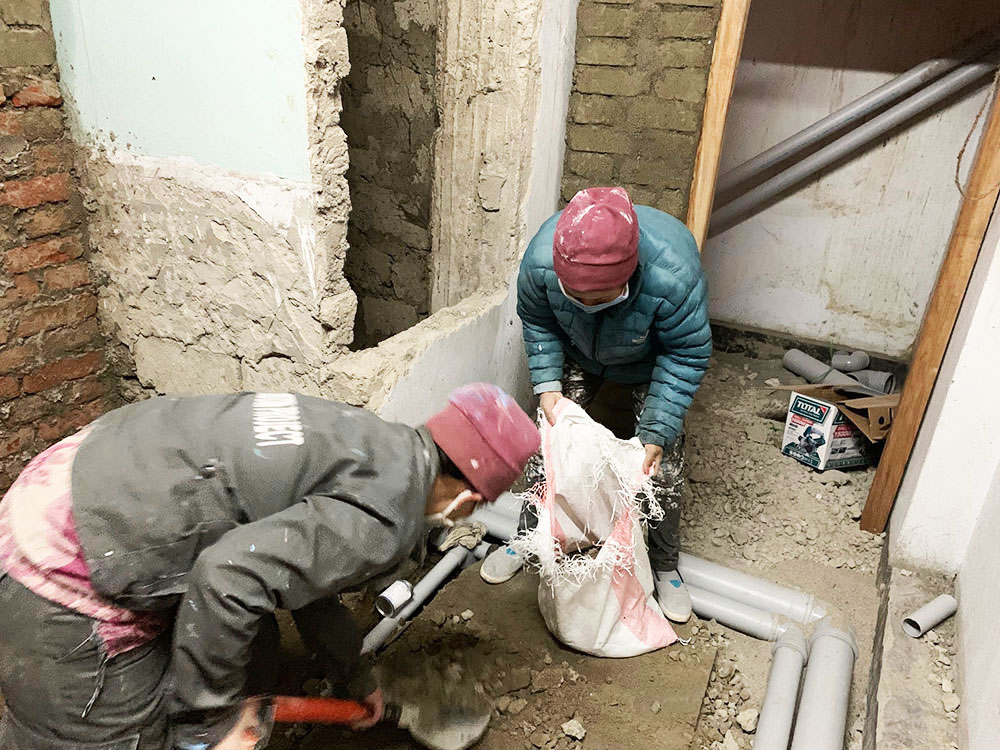TVET reform promises “work-ready”, “world-ready”, and “future-ready graduates”
Yangchen C Rinzin
Transformation at all levels is the pillar of reforms planned in the Technical and Vocational Education and Training (TVET) in the country.
Product transformation, place transformation, people transformation, and process transformation are the four pillars of transformation that TVET reform plan will focus on.
TVET reform plan was approved on July 27 during the 98th session of the third Cabinet meeting. The approval letter was issued a week ago.
The reform will deliver TVET programmes that are designed to adequately equip Bhutanese youth with 21st-century skills, according to the draft TVET Reform Plan.
The reform plan was based and prepared following several issues and challenges it recognised. Low public perception of TVET to attract high performers, incoherent TVET policy, legal framework and regulation, limited, outdated and supply-driven TVET programme not linked to national economic priorities are some of the challenges.
It was found that incoherent and non-sustainable TVET financing, no post-training facilitation support, limited industry involvement, inadequate supply of qualified, competent and passionate TVET professionals, and weak linkages and pathways between the high school, TVET institution and tertiary education.
TVET programmes would be designed to adequately equip Bhutanese youth with 21st-century skills in terms of product transformation. This includes overhauling the national assessment and certification system to global standards.
TVET institution
The ministry will build a TVET institution that provides an appealing, authentic, holistic and ICT-enabled learning environment that incorporates safety and protection features at par with international standards in all infrastructure and facilities.
It would also provide adequate tools and equipment in line with industry standards.
“It would create smart learning spaces through integration of ICT and digital infrastructure,” says the plan.
On people transformation, the reform would develop and nurture a pool of committed, motivated, inspiring and qualified TVET leaders and professionals to take the TVET system to global standards. This time, the reform would also focus on the capacity building of TVET trainers to deliver persons with disabilities friendly courses.
The plan is also to develop policy to provide TVET leaders, managers and professionals with competitive financial incentives, facilities, privileges and preferences. It would also include a system to involve industry experts in training delivery.
It also aims to put in place a responsive, robust, agile, sustainable, resilient, and high performing TVET system in terms of process transformation. In this, the ministry will look into developing TVET Act and policy, increase budget allocation for the TVET sector, and explore partnerships with the private sector.
The ultimate objective would be to promote TVET as a mainstream learning and career choice.
Operationalisation for Plan
TVET will focus on “Centre of Excellence” to enhance operational efficiency and promote research and innovation. The plan, for instance, is to create a centre for digital technology and computing in technical training institutes (TTI) in Rangjung, engineering and construction at the TTI in Chumey, Bumthang and tourism hospitality at the Royal Institute for Tourism and Hospitality, Thimphu.
The centre of excellence has projected about 119 national certificates and diploma (NC/ND) courses with about 3,000 total enrolments in a year. About 28 courses of NC and ND are proposed to implement by June 2024 with the budget expected to cost about Nu 569 million till 2026.
In terms of the operational plan for product transformation, it will look into course rollout and enrolment projection like existing institute capacity, a centre of excellence, provision for future expansion, labour market demand, and youth-centric courses.
About 2,300 capacities are planned to expand in various TTIs and institutes of zorig chusum. It is expected to increase by about 3,000 capacities in the other public training providers. It is estimated to cost about Nu 400 million for the fiscal year 2021-2024 for the expansion of capacity.
The operational plan for place transformation will look into parameters like readiness for enrolment of Gyalsung graduates and existing facility and scope for expansion.
The reform plan would also look into re-assignment of relevant existing trainers, recruitment of master trainers, and TVET scholarship. There is a requirement for more than 100 trainers at various TTIs and IZCs.
In terms of master trainer projection, there is a requirement of about 90 trainers for trainers to be deployed year wise. The total budget required is estimated at more than Nu 200 million.
Meanwhile, various financing partners are expected to source the finance for the reform plan. The entire reform is expected to cost about USD 633,32.01.
Edited by Jigme Wangchuk


